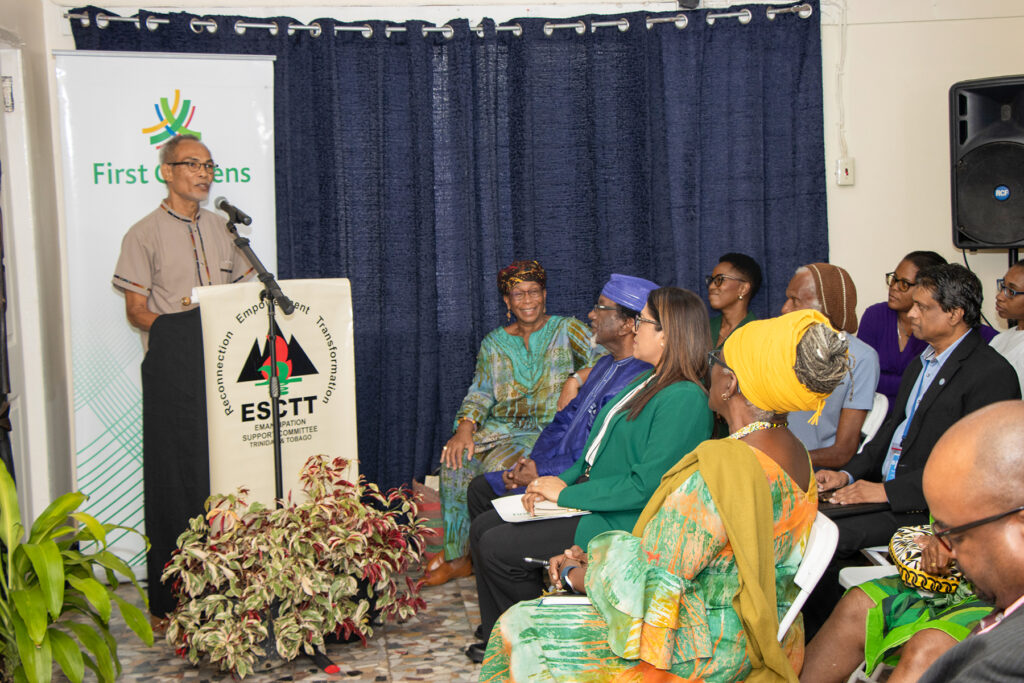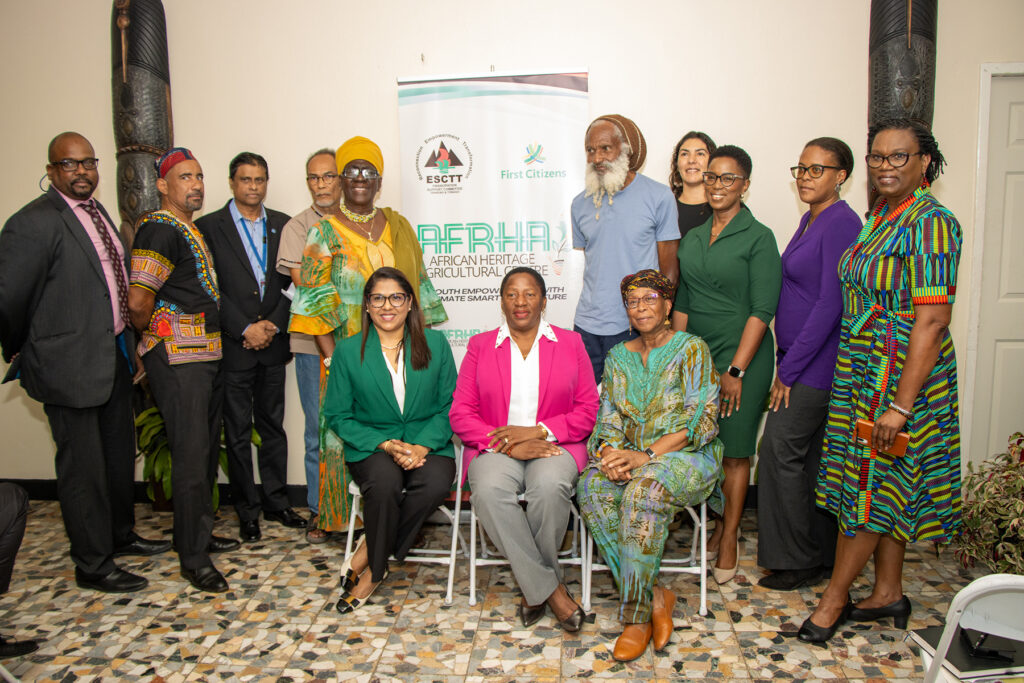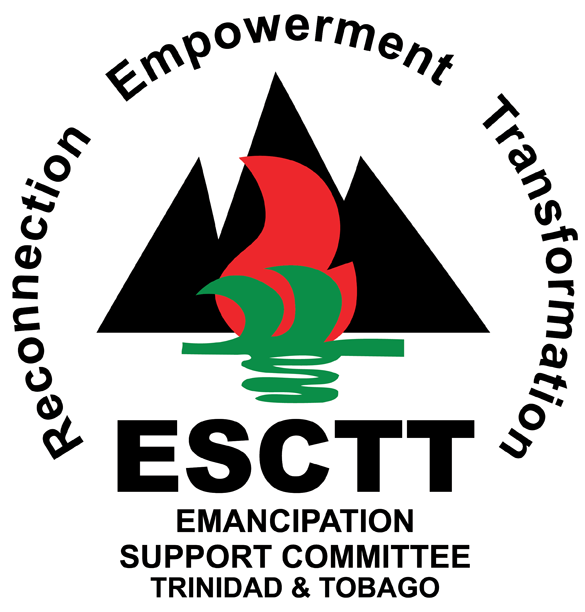
The Emancipation Support Committee of Trinidad and Tobago (ESCTT) is offering a dual plan that seeks to increase domestic agriculture and empower young people to transform their lives. This will be conducted though a multi-purpose African Heritage Agricultural Centre (AFRHA), purposed for training in climate smart agriculture and life skills.
Dr. Asha Kambon, ESCTT Lead for AFRHA explained to the attentive audience the major tenets of the project. “This project aims to provide Holistic Youth Empowerment: The AFRHA will not only provide climate smart agricultural training but also integrate life skills development rooted in African values and culture, addressing the broader social and economic challenges faced by young people. As well as Focus on Food Security: The project aims to contribute to the reduction of Trinidad and Tobago’s reliance on food imports by engaging youth in sustainable agricultural practices, contributing to both community and national food security.”
“What we realised is that the Covid-19 pandemic placed sharper focus on existing vulnerabilities in Trinidad and Tobago. One of them is the food security issue which manifested in the food import bill of some TT$5.6 billion annually in a period of sharply declining revenues. Then there is a vulnerable population of young urban African males and females who are not well prepared to participate in the changing economic environment,” explained Zakiya Uzoma-Wadada, Executive Chairperson of the ESCTT. Ms Uzoma-Wadada thanked the FC Group for coming to the support of the ESCTT to bring this project to fruition.
AFRHA is targeted at urban out-of-school youth, aged 16-24 in communities found in the traditional Yoruba Village which includes San Juan, East Dry River, Laventille, Morvant, Belmont, Gonzales, Beetham and others now referred to as East Port of Spain, who will receive training and mentorship in agriculture and life skills.
“This project is meant to empower young people to transform their lives and their communities, through the use of the latest technology and good agricultural practices while learning climate-smart agricultural practices, such as crop selection, specialised seeds and land preparation,” said Dr Asha Kambon.

The project was launched on January 16 at ESCTT’s Secretariat on Bergerac Road, Maraval.
The launch was addressed by the Minister of Planning and Development, The Honourable Pennelope Beckles-Robinson and First Citizens’ Group Deputy CEO – Operations and Administration, Ms. Neela Moonilal-Kissoon. First Citizens pledged its partnership in this project for a three-year period.
Delivering the feature address, Minister Beckles-Robinson made a plea to fellow community-based and non-Governmental organisations and private sector entities to support this initiative.
“By partnering with the Committee and organisations like it, you can amplify these efforts, expand their reach, and deepen their impact. Private sector involvement is critical for funding and sharing expertise, creating networks, and offering opportunities that bridge the gap between potential and achievement,” the Minister said.
“Together, we can unlock the vast reservoir of talent within our young people and ensure that no one is left behind in our pursuit of a brighter future. Through your contributions of knowledge and resources, we can develop more socially, ecologically and economically-sustainable models of development, as a part of the global community,” the Minister added.
Moonilal-Kissoon commended ESCTT’s efforts as she also pointed out the need to work with climate matters. “The Caribbean continues to feel the effects of growing environmental challenges. It is evident therefore that our solutions must be innovative and multi-pronged,” she said.
The CEO also noted that the Bank supported ESCTT’s energy in providing young people with important life development skills. “We are confident that this holistic experience will help transform their lives and make a meaningful impact on their families and communities,” Moonilal-Kissoon said.
In addition to First Citizens Group, AFRHA also has the support from The University of the West Indies, St. Augustine. The University has expressed its interest in collaborating on this project and is in the process of formalizing a Memorandum of Understanding with ESCTT. The United Nations Food and Agriculture Organisation has also indicated its support for the project and was represented by Mr. Suresh Sookbir, the Multi Programme Coordinator of the FAO, in Trinidad and Tobago.
AFRHA contributes to the attainment of the goals of the United Nations International Decade for People of African Descent, with its call to action to address issues impacting people of African descent in the areas of recognition, justice, and development. It will seek to address the United Nations Sustainable Development Goals (SDGs), with a particular focus on youth in Trinidad and Tobago. In that regard, the programme will keep in focus SDG1 – Ending poverty, SDG5 – Gender equality, SDG8 – Decent work and economic growth, SDG10 – Reduced inequalities, SDG13 – Climate action, and SDG16 – Peace, justice, and strong institutions. AFRHA is structured into five three-year phases, with a 15-year horizon for full development. The first phase will focus on establishing the training facility, developing crops, and training the initial batches of youth.



